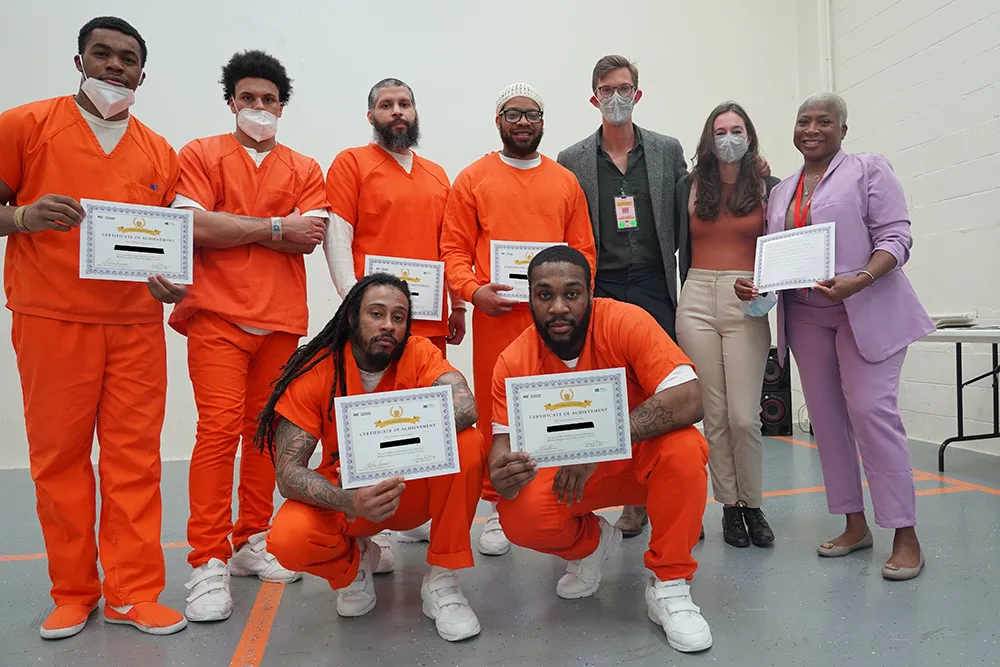Most doctors enter the medical field with the goal of helping patients. However, today’s healthcare system requires them to spend hours daily on tasks like electronic health record (EHR) searches, documentation, coding, billing, prior authorizations, and utilization management. These tasks often take more time than patient care, leading to physician burnout, administrative inefficiencies, and a decline in overall patient care quality.
Ambience Healthcare aims to address these issues with an AI-driven platform that automates routine tasks for clinicians before, during, and after patient visits.
"We’re building copilots to give clinicians AI superpowers," says Mike Ng, CEO of Ambience and MIT Sloan MBA ’16, who co-founded the company with Nikhil Buduma ’17. "Our platform integrates directly with EHRs, allowing clinicians to focus on what matters most: providing the best possible care to patients."
Ambience’s suite of products handles real-time AI mapping and tracing, and assists in navigating thousands of rules to select the correct insurance billing codes. The platform can also send post-visit summaries to patients and their families in various languages, ensuring everyone is informed and aligned.
Ambience is already in use at around 40 major institutions, including UCSF Health, Memorial Hermann Health System, St. Luke’s Health System, and John Muir Health. Clinicians use Ambience in dozens of languages and across more than 100 specialties and subspecialties, in settings such as emergency departments, inpatient hospitals, and oncology units.
The founders report that clinicians using Ambience save two to three hours per day on documentation, experience lower burnout levels, and build better relationships with their patients.
From Problem to Product to Platform
Ng worked in finance until he closely examined the healthcare system after a back injury in 2012. Initially misdiagnosed and given an incorrect care plan, he learned about the U.S. healthcare system, including how clinicians spend most of their days documenting visits, selecting billing codes, and performing other administrative tasks. On average, clinicians spend only 27% of their time on direct patient care.
In 2014, Ng enrolled at MIT Sloan School of Management. During his first week, he attended the "t=0" entrepreneurship celebration hosted by the Martin Trust Center for MIT Entrepreneurship, where he met Buduma. The two quickly became friends and took courses together, including 15.378 (Building an Entrepreneurial Venture) and 15.392 (Scaling an Entrepreneurial Venture).
"MIT was an incredible training ground for assessing what makes a great company and learning the fundamentals of building a successful business," Ng says.
Buduma had his own journey of discovering healthcare system issues. After immigrating from India to the U.S. as a child and dealing with persistent health problems, he saw his parents struggle to navigate the American medical system. While completing his undergraduate degree at MIT, he immersed himself in the AI research community and co-authored one of the first textbooks on modern AI and deep learning.
In 2016, Ng and Buduma founded their first company in San Francisco, Remedy Health, which utilized its own AI-powered healthcare platform. By hiring clinicians, caring for patients, and implementing technology themselves, they gained a deeper understanding of the challenges facing healthcare organizations.
During this time, they also witnessed advancements in AI. Google’s Chief Scientist Jeff Dean, a major investor in Remedy and now in Ambience, led a research group at Google Brain to invent the transformer architecture. Ng and Buduma claim to have been among the first to deploy transformers in production to support their own clinicians at Remedy. Subsequently, several of their friends and roommates formed the large language model group at OpenAI. Their work laid the foundation for research that eventually led to ChatGPT.
"It was clear we were at an inflection point where we would have this class of general-purpose models that would improve exponentially," Buduma explains. "But we also noticed a significant gap between these general-purpose models and those robust enough to operate in clinical settings. Mike and I decided in 2020 that there should be a team focused specifically on tailoring these models for healthcare and medicine."
The founders launched Ambience by creating an AI-powered scribe that works on phones and laptops to record details of doctor-patient visits in a HIPAA-compliant system that maintains patient privacy. They quickly realized the models needed to be tailored for each medical field and gradually expanded specialty coverage one by one over a multi-year process.
The founders also recognized that their scribes needed to integrate with back-office operations like insurance coding and billing.
"Documentation isn’t just for the clinician; it’s also for the revenue cycle team," Buduma says. "We had to go back and rewrite all our algorithms to be coding-aware. There are literally tens of thousands of coding rules that change every year and differ by specialty and contract type."
From there, the founders developed models that allow clinicians to make referrals and send comprehensive visit summaries to patients.
"In most care settings before Ambience, when a patient and their family left the clinic, all they had was what they remembered from the visit," Buduma explains. "This is one of the features doctors appreciate most, as they strive to create the best experience for patients and their families. By the time the patient reaches the parking lot, they already have a very solid, high-quality summary of exactly what was discussed and all the shared decision-making around their visit on their portal."
Democratizing Healthcare
By improving physician productivity, the founders believe they are helping the healthcare system manage a chronic shortage of clinicians expected to worsen in the coming years.
"In healthcare, access remains a huge issue," Ng says. "Rural Americans have a 40% higher risk of avoidable hospitalization, and half of that risk is attributed to a lack of access to specialty care."
While Ambience already helps health systems manage thin margins by streamlining administrative tasks, the founders have a longer-term vision to help increase access to top clinical knowledge across the country.
"There is a really exciting opportunity to democratize expertise from some of the leading academic medical centers in the U.S.," Ng says. "Right now, there simply aren’t enough specialists in the U.S. to support our rural populations. We hope to help extend the knowledge of the country’s leading specialists through an AI infrastructure layer, especially as these models become more clinically intelligent."



